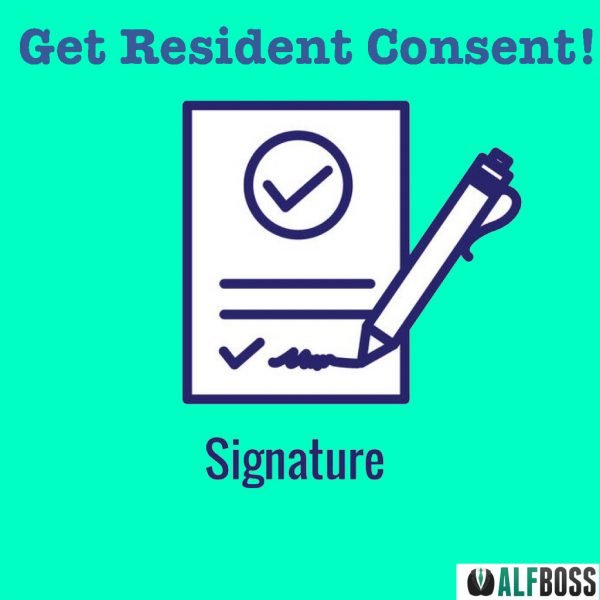[vc_row][vc_column][vc_raw_html]JTNDcCUzRUklMjBhbSUyMHJhdyUyMGh0bWwlMjBibG9jay4lM0NiciUyRiUzRUNsJTNDJTIxLS0lMjBBV2ViZXIlMjBXZWIlMjBGb3JtJTIwR2VuZXJhdG9yJTIwMy4wLjElMjAtLSUzRSUwQSUzQ3N0eWxlJTIwdHlwZSUzRCUyMnRleHQlMkZjc3MlMjIlM0UlMEElMjNhZi1mb3JtLTE4MTkwMjQ0MzQlMjAuYWYtYm9keSUyMC5hZi10ZXh0V3JhcCU3QndpZHRoJTNBMTAwJTI1JTNCZGlzcGxheSUzQWJsb2NrJTNCZmxvYXQlM0Fub25lJTNCJTIwbWFyZ2luJTNBMCUyMGF1dG8lM0IlMjB0ZXh0LWFsaWduJTNBY2VudGVyJTNCJTdEJTBBJTIzYWYtZm9ybS0xODE5MDI0NDM0JTIwLmFmLWJvZHklMjBhJTdCY29sb3IlM0ElMjNDQ0NDQ0MlM0J0ZXh0LWRlY29yYXRpb24lM0F1bmRlcmxpbmUlM0Jmb250LXN0eWxlJTNBbm9ybWFsJTNCZm9udC13ZWlnaHQlM0Fub3JtYWwlM0IlN0QlMEElMjNhZi1mb3JtLTE4MTkwMjQ0MzQlMjAuYWYtYm9keSUyMGlucHV0LnRleHQlMkMlMjAlMjNhZi1mb3JtLTE4MTkwMjQ0MzQlMjAuYWYtYm9keSUyMHRleHRhcmVhJTdCYmFja2dyb3VuZC1jb2xvciUzQSUyM0ZGRkZGRiUzQmJvcmRlci1jb2xvciUzQSUyM0Q5RDlEOSUzQmJvcmRlci13aWR0aCUzQTFweCUzQmJvcmRlci1zdHlsZSUzQXNvbGlkJTNCY29sb3IlM0ElMjM2NjY2NjYlM0J0ZXh0LWRlY29yYXRpb24lM0Fub25lJTNCZm9udC1zdHlsZSUzQW5vcm1hbCUzQmZvbnQtd2VpZ2h0JTNBbm9ybWFsJTNCZm9udC1zaXplJTNBMjRweCUzQmZvbnQtZmFtaWx5JTNBTnVuaXRvJTJDQXJpYWwlMkNIZWx2ZXRpY2ElMkNzYW5zLXNlcmlmJTNCJTdEJTBBJTIzYWYtZm9ybS0xODE5MDI0NDM0JTIwLmFmLWJvZHklMjBpbnB1dC50ZXh0JTNBZm9jdXMlMkMlMjAlMjNhZi1mb3JtLTE4MTkwMjQ0MzQlMjAuYWYtYm9keSUyMHRleHRhcmVhJTNBZm9jdXMlN0JiYWNrZ3JvdW5kLWNvbG9yJTNBJTIzRkZGQUQ2JTNCYm9yZGVyLWNvbG9yJTNBJTIzMDMwMzAzJTNCYm9yZGVyLXdpZHRoJTNBMXB4JTNCYm9yZGVyLXN0eWxlJTNBc29saWQlM0IlN0QlMEElMjNhZi1mb3JtLTE4MTkwMjQ0MzQlMjAuYWYtYm9keSUyMGxhYmVsLnByZXZpZXdMYWJlbCU3QmRpc3BsYXklM0FibG9jayUzQmZsb2F0JTNBbm9uZSUzQnRleHQtYWxpZ24lM0FsZWZ0JTNCd2lkdGglM0FhdXRvJTNCY29sb3IlM0ElMjNDQ0NDQ0MlM0J0ZXh0LWRlY29yYXRpb24lM0Fub25lJTNCZm9udC1zdHlsZSUzQW5vcm1hbCUzQmZvbnQtd2VpZ2h0JTNBbm9ybWFsJTNCZm9udC1zaXplJTNBMjRweCUzQmZvbnQtZmFtaWx5JTNBTnVuaXRvJTJDQXJpYWwlMkNIZWx2ZXRpY2ElMkNzYW5zLXNlcmlmJTNCJTdEJTBBJTIzYWYtZm9ybS0xODE5MDI0NDM0JTIwLmFmLWJvZHklN0JwYWRkaW5nLWJvdHRvbSUzQTUwcHglM0JwYWRkaW5nLXRvcCUzQTdweCUzQmJhY2tncm91bmQtcmVwZWF0JTNBbm8tcmVwZWF0JTNCYmFja2dyb3VuZC1wb3NpdGlvbiUzQWluaGVyaXQlM0JiYWNrZ3JvdW5kLWltYWdlJTNBbm9uZSUzQmNvbG9yJTNBJTIzQ0NDQ0NDJTNCZm9udC1zaXplJTNBMTFweCUzQmZvbnQtZmFtaWx5JTNBVmVyZGFuYSUyQyUyMHNhbnMtc2VyaWYlM0IlMjB0ZXh0LWFsaWduJTNBY2VudGVyJTNCJTdEJTBBJTIzYWYtZm9ybS0xODE5MDI0NDM0JTIwLmFmLXF1aXJrc01vZGUlMjAuYm9keVRleHQlN0JwYWRkaW5nLXRvcCUzQTJweCUzQnBhZGRpbmctYm90dG9tJTNBMnB4JTNCJTdEJTBBJTIzYWYtZm9ybS0xODE5MDI0NDM0JTIwLmFmLXF1aXJrc01vZGUlN0JwYWRkaW5nLXJpZ2h0JTNBNjBweCUzQnBhZGRpbmctbGVmdCUzQTYwcHglM0IlN0QlMEElMjNhZi1mb3JtLTE4MTkwMjQ0MzQlMjAuYWYtc3RhbmRhcmRzJTIwLmFmLWVsZW1lbnQlN0JwYWRkaW5nLXJpZ2h0JTNBMTBweCUzQnBhZGRpbmctbGVmdCUzQTEwcHglM0IlN0QlMEElMjNhZi1mb3JtLTE4MTkwMjQ0MzQlMjAuYm9keVRleHQlMjBwJTdCbWFyZ2luJTNBMWVtJTIwMCUzQiU3RCUwQSUyM2FmLWZvcm0tMTgxOTAyNDQzNCUyMC5idXR0b25Db250YWluZXIlMjBpbnB1dC5zdWJtaXQlN0JiYWNrZ3JvdW5kJTNBJTIwJTIzZmY2NjAwJTIwbm9uZSUyMHJlcGVhdCUyMHNjcm9sbCUyMDAlMjAwJTNCYm9yZGVyLXJhZGl1cyUzQSUyMDNweCUzQmNvbG9yJTNBJTIwJTIzZmZmJTNCZm9udC1mYW1pbHklM0ElMjB1YnVudHUlM0Jmb250LXNpemUlM0ElMjAxOHB4JTNCZm9udC13ZWlnaHQlM0ElMjBib2xkJTNCaGVpZ2h0JTNBJTIwNjBweCUzQmxpbmUtaGVpZ2h0JTNBJTIwMS4zJTNCbWF4LXdpZHRoJTNBJTIwMTAwJTI1JTNCcGFkZGluZyUzQSUyMDEycHglMjAxMnB4JTNCdGV4dC10cmFuc2Zvcm0lM0ElMjB1cHBlcmNhc2UlM0J2ZXJ0aWNhbC1hbGlnbiUzQSUyMG1pZGRsZSUzQndpZHRoJTNBJTIwMjcwcHglM0IlN0QlMEElMjNhZi1mb3JtLTE4MTkwMjQ0MzQlMjAuYnV0dG9uQ29udGFpbmVyJTIwaW5wdXQuc3VibWl0JTdCd2lkdGglM0FhdXRvJTNCJTdEJTBBJTIzYWYtZm9ybS0xODE5MDI0NDM0JTIwLmJ1dHRvbkNvbnRhaW5lciU3QnRleHQtYWxpZ24lM0FjZW50ZXIlM0IlN0QlMEElMjNhZi1mb3JtLTE4MTkwMjQ0MzQlMjBib2R5JTJDJTIzYWYtZm9ybS0xODE5MDI0NDM0JTIwZGwlMkMlMjNhZi1mb3JtLTE4MTkwMjQ0MzQlMjBkdCUyQyUyM2FmLWZvcm0tMTgxOTAyNDQzNCUyMGRkJTJDJTIzYWYtZm9ybS0xODE5MDI0NDM0JTIwaDElMkMlMjNhZi1mb3JtLTE4MTkwMjQ0MzQlMjBoMiUyQyUyM2FmLWZvcm0tMTgxOTAyNDQzNCUyMGgzJTJDJTIzYWYtZm9ybS0xODE5MDI0NDM0JTIwaDQlMkMlMjNhZi1mb3JtLTE4MTkwMjQ0MzQlMjBoNSUyQyUyM2FmLWZvcm0tMTgxOTAyNDQzNCUyMGg2JTJDJTIzYWYtZm9ybS0xODE5MDI0NDM0JTIwcHJlJTJDJTIzYWYtZm9ybS0xODE5MDI0NDM0JTIwY29kZSUyQyUyM2FmLWZvcm0tMTgxOTAyNDQzNCUyMGZpZWxkc2V0JTJDJTIzYWYtZm9ybS0xODE5MDI0NDM0JTIwbGVnZW5kJTJDJTIzYWYtZm9ybS0xODE5MDI0NDM0JTIwYmxvY2txdW90ZSUyQyUyM2FmLWZvcm0tMTgxOTAyNDQzNCUyMHRoJTJDJTIzYWYtZm9ybS0xODE5MDI0NDM0JTIwdGQlN0JmbG9hdCUzQW5vbmUlM0Jjb2xvciUzQWluaGVyaXQlM0Jwb3NpdGlvbiUzQXN0YXRpYyUzQm1hcmdpbiUzQTAlM0JwYWRkaW5nJTNBMCUzQiU3RCUwQSUyM2FmLWZvcm0tMTgxOTAyNDQzNCUyMGJ1dHRvbiUyQyUyM2FmLWZvcm0tMTgxOTAyNDQzNCUyMGlucHV0JTJDJTIzYWYtZm9ybS0xODE5MDI0NDM0JTIwc3VibWl0JTJDJTIzYWYtZm9ybS0xODE5MDI0NDM0JTIwdGV4dGFyZWElMkMlMjNhZi1mb3JtLTE4MTkwMjQ0MzQlMjBzZWxlY3QlMkMlMjNhZi1mb3JtLTE4MTkwMjQ0MzQlMjBsYWJlbCUyQyUyM2FmLWZvcm0tMTgxOTAyNDQzNCUyMG9wdGdyb3VwJTJDJTIzYWYtZm9ybS0xODE5MDI0NDM0JTIwb3B0aW9uJTdCZmxvYXQlM0Fub25lJTNCcG9zaXRpb24lM0FzdGF0aWMlM0JtYXJnaW4lM0EwJTNCJTdEJTBBJTIzYWYtZm9ybS0xODE5MDI0NDM0JTIwZGl2JTdCbWFyZ2luJTNBMCUzQiU3RCUwQSUyM2FmLWZvcm0tMTgxOTAyNDQzNCUyMGZpZWxkc2V0JTdCYm9yZGVyJTNBMCUzQiU3RCUwQSUyM2FmLWZvcm0tMTgxOTAyNDQzNCUyMGZvcm0lMkMlMjNhZi1mb3JtLTE4MTkwMjQ0MzQlMjB0ZXh0YXJlYSUyQy5hZi1mb3JtLXdyYXBwZXIlMkMuYWYtZm9ybS1jbG9zZS1idXR0b24lMkMlMjNhZi1mb3JtLTE4MTkwMjQ0MzQlMjBpbWclN0JmbG9hdCUzQW5vbmUlM0Jjb2xvciUzQWluaGVyaXQlM0Jwb3NpdGlvbiUzQXN0YXRpYyUzQmJhY2tncm91bmQtY29sb3IlM0Fub25lJTNCYm9yZGVyJTNBbm9uZSUzQm1hcmdpbiUzQTAlM0JwYWRkaW5nJTNBMCUzQiU3RCUwQSUyM2FmLWZvcm0tMTgxOTAyNDQzNCUyMGlucHV0JTJDJTIzYWYtZm9ybS0xODE5MDI0NDM0JTIwYnV0dG9uJTJDJTIzYWYtZm9ybS0xODE5MDI0NDM0JTIwdGV4dGFyZWElMkMlMjNhZi1mb3JtLTE4MTkwMjQ0MzQlMjBzZWxlY3QlN0Jmb250LXNpemUlM0ExMDAlMjUlM0IlN0QlMEElMjNhZi1mb3JtLTE4MTkwMjQ0MzQlMjBwJTdCY29sb3IlM0Fpbmhlcml0JTNCJTdEJTBBJTIzYWYtZm9ybS0xODE5MDI0NDM0JTIwc2VsZWN0JTJDJTIzYWYtZm9ybS0xODE5MDI0NDM0JTIwbGFiZWwlMkMlMjNhZi1mb3JtLTE4MTkwMjQ0MzQlMjBvcHRncm91cCUyQyUyM2FmLWZvcm0tMTgxOTAyNDQzNCUyMG9wdGlvbiU3QnBhZGRpbmclM0EwJTNCJTdEJTBBJTIzYWYtZm9ybS0xODE5MDI0NDM0JTIwdGFibGUlN0Jib3JkZXItY29sbGFwc2UlM0Fjb2xsYXBzZSUzQmJvcmRlci1zcGFjaW5nJTNBMCUzQiU3RCUwQSUyM2FmLWZvcm0tMTgxOTAyNDQzNCUyMHVsJTJDJTIzYWYtZm9ybS0xODE5MDI0NDM0JTIwb2wlN0JsaXN0LXN0eWxlLWltYWdlJTNBbm9uZSUzQmxpc3Qtc3R5bGUtcG9zaXRpb24lM0FvdXRzaWRlJTNCbGlzdC1zdHlsZS10eXBlJTNBZGlzYyUzQnBhZGRpbmctbGVmdCUzQTQwcHglM0IlN0QlMEElMjNhZi1mb3JtLTE4MTkwMjQ0MzQlMkMlMjNhZi1mb3JtLTE4MTkwMjQ0MzQlMjAucXVpcmtzTW9kZSU3QndpZHRoJTNBMTAwJTI1JTNCbWF4LXdpZHRoJTNBMjUwMHB4JTNCbWluLWhlaWdodCUzQSUyMDI1MHB4JTNCJTdEJTBBJTIzYWYtZm9ybS0xODE5MDI0NDM0LmFmLXF1aXJrc01vZGUlN0JvdmVyZmxvdy14JTNBaGlkZGVuJTNCJTdEJTBBJTIzYWYtZm9ybS0xODE5MDI0NDM0JTdCYmFja2dyb3VuZCUzQXVybCUyOGh0dHBzJTNBJTJGJTJGYWxmYm9zcy5jb20lMkZ3cC1jb250ZW50JTJGdXBsb2FkcyUyRjIwMTclMkYwMyUyRmJnLWdyYXkzLmpwZyUyOSUyMG5vLXJlcGVhdCUyMDUwJTI1JTIwJTIzNTU1NTU1JTNCYmFja2dyb3VuZC1wb3NpdGlvbiUzQSUyMGJvdHRvbSUzQmJvcmRlci1jb2xvciUzQSUyM0NGQ0ZDRiUzQmJvcmRlci13aWR0aCUzQTFweCUzQmJvcmRlci1zdHlsZSUzQW5vbmUlM0IlN0QlMEElMjNhZi1mb3JtLTE4MTkwMjQ0MzQlN0JkaXNwbGF5JTNBYmxvY2slM0IlN0QlMEElMjNhZi1mb3JtLTE4MTkwMjQ0MzQlN0JvdmVyZmxvdyUzQWhpZGRlbiUzQiU3RCUwQS5hZi1ib2R5JTIwLmFmLXRleHRXcmFwJTdCdGV4dC1hbGlnbiUzQWxlZnQlM0IlN0QlMEEuYWYtYm9keSUyMGlucHV0LmltYWdlJTdCYm9yZGVyJTNBbm9uZSUyMWltcG9ydGFudCUzQiU3RCUwQS5hZi1ib2R5JTIwaW5wdXQuc3VibWl0JTJDLmFmLWJvZHklMjBpbnB1dC5pbWFnZSUyQy5hZi1mb3JtJTIwLmFmLWVsZW1lbnQlMjBpbnB1dC5idXR0b24lN0JmbG9hdCUzQW5vbmUlMjFpbXBvcnRhbnQlM0IlN0QlMEEuYWYtYm9keSUyMGlucHV0LnRleHQlN0J3aWR0aCUzQTEwMCUyNSUzQmZsb2F0JTNBbm9uZSUzQnBhZGRpbmclM0EycHglMjFpbXBvcnRhbnQlM0IlN0QlMEEuYWYtYm9keS5hZi1zdGFuZGFyZHMlMjBpbnB1dC5zdWJtaXQlN0JwYWRkaW5nJTNBNHB4JTIwMTJweCUzQiU3RCUwQS5hZi1jbGVhciU3QmNsZWFyJTNBYm90aCUzQiU3RCUwQS5hZi1lbGVtZW50JTIwbGFiZWwlN0J0ZXh0LWFsaWduJTNBbGVmdCUzQmRpc3BsYXklM0FibG9jayUzQmZsb2F0JTNBbGVmdCUzQiU3RCUwQS5hZi1lbGVtZW50JTdCcGFkZGluZy1ib3R0b20lM0ExcHglM0JwYWRkaW5nLXRvcCUzQTFweCUzQiU3RCUwQS5hZi1mb3JtLXdyYXBwZXIlN0J0ZXh0LWluZGVudCUzQTAlM0IlN0QlMEEuYWYtZm9ybSU3QnRleHQtYWxpZ24lM0FsZWZ0JTNCbWFyZ2luJTNBYXV0byUzQiU3RCUwQS5hZi1xdWlya3NNb2RlJTIwLmFmLWVsZW1lbnQlN0JwYWRkaW5nLWxlZnQlM0EwJTIxaW1wb3J0YW50JTNCcGFkZGluZy1yaWdodCUzQTAlMjFpbXBvcnRhbnQlM0IlN0QlMEEubGJsLXJpZ2h0JTIwLmFmLWVsZW1lbnQlMjBsYWJlbCU3QnRleHQtYWxpZ24lM0FyaWdodCUzQiU3RCUwQWJvZHklMjAlN0IlMEElN0QlMEEuc2VjdGlvbiUyMCU3QiUwQSUwOWNsZWFyJTNBJTIwYm90aCUzQiUwQSUwOXBhZGRpbmclM0ElMjAwcHglM0IlMEElMDltYXJnaW4lM0ElMjAwcHglM0IlMEElN0QlMEElMEEuY29sJTIwJTdCJTBBJTA5ZGlzcGxheSUzQSUyMGJsb2NrJTNCJTBBJTA5ZmxvYXQlM0FsZWZ0JTNCJTBBJTA5bWFyZ2luLWxlZnQlM0ElMjAyNXB4JTNCJTBBJTdEJTBBLmNvbCUzQWZpcnN0LWNoaWxkJTIwJTdCJTIwbWFyZ2luLWxlZnQlM0ElMjAwJTNCJTIwJTdEJTBBLmdyb3VwJTNBYmVmb3JlJTJDJTBBLmdyb3VwJTNBYWZ0ZXIlMjAlN0IlMjBjb250ZW50JTNBJTIyJTIyJTNCJTIwZGlzcGxheSUzQXRhYmxlJTNCJTIwJTdEJTBBLmdyb3VwJTNBYWZ0ZXIlMjAlN0IlMjBjbGVhciUzQWJvdGglM0IlN0QlMEEuZ3JvdXAlMjAlN0IlMjB6b29tJTNBMSUzQiUyMCUyRiUyQSUyMEZvciUyMElFJTIwNiUyRjclMjAlMkElMkYlMjAlN0QlMEEuc3Bhbl80X29mXzQlMjAlN0IlMEElMDl3aWR0aCUzQSUyMDEwMCUyNSUzQiUwQSU3RCUwQS5zcGFuXzNfb2ZfNCUyMCU3QiUwQSUwOXdpZHRoJTNBJTIwNzQuNiUyNSUzQiUwQSU3RCUwQS5zcGFuXzJfb2ZfNCUyMCU3QiUwQSUwOXdpZHRoJTNBJTIwNDkuMiUyNSUzQiUwQSU3RCUwQS5zcGFuXzFfb2ZfNCUyMCU3QiUwQSUwOXdpZHRoJTNBJTIwMjIlMjUlM0IlMEElN0QlMEElMEElNDBtZWRpYSUyMG9ubHklMjBzY3JlZW4lMjBhbmQlMjAlMjhtYXgtd2lkdGglM0ElMjA0ODBweCUyOSUyMCU3QiUwQSUwOS5jb2wlMjAlN0IlMjAlMjBtYXJnaW4lM0ElMjAxJTI1JTIwMCUyMDElMjUlMjAwJTI1JTNCJTIwJTdEJTBBJTA5LnNwYW5fMV9vZl80JTJDJTIwLnNwYW5fMl9vZl80JTJDJTIwLnNwYW5fM19vZl80JTJDJTIwLnNwYW5fNF9vZl80JTIwJTdCJTIwd2lkdGglM0ElMjAxMDAlMjUlM0IlMjAlN0QlMEElN0QlMEElM0MlMkZzdHlsZSUzRSUwQSUzQ2Zvcm0lMjBtZXRob2QlM0QlMjJwb3N0JTIyJTIwY2xhc3MlM0QlMjJhZi1mb3JtLXdyYXBwZXIlMjIlMjBhY2NlcHQtY2hhcnNldCUzRCUyMlVURi04JTIyJTIwYWN0aW9uJTNEJTIyaHR0cHMlM0ElMkYlMkZ3d3cuYXdlYmVyLmNvbSUyRnNjcmlwdHMlMkZhZGRsZWFkLnBsJTIyJTIwJTNFJTBBJTNDZGl2JTIwc3R5bGUlM0QlMjJkaXNwbGF5JTNBJTIwbm9uZSUzQiUyMiUzRSUwQSUzQ2lucHV0JTIwdHlwZSUzRCUyMmhpZGRlbiUyMiUyMG5hbWUlM0QlMjJtZXRhX3dlYl9mb3JtX2lkJTIyJTIwdmFsdWUlM0QlMjIxODE5MDI0NDM0JTIyJTIwJTJGJTNFJTBBJTNDaW5wdXQlMjB0eXBlJTNEJTIyaGlkZGVuJTIyJTIwbmFtZSUzRCUyMm1ldGFfc3BsaXRfaWQlMjIlMjB2YWx1ZSUzRCUyMiUyMiUyMCUyRiUzRSUwQSUzQ2lucHV0JTIwdHlwZSUzRCUyMmhpZGRlbiUyMiUyMG5hbWUlM0QlMjJsaXN0bmFtZSUyMiUyMHZhbHVlJTNEJTIyYXdsaXN0NDIxNTM1NCUyMiUyMCUyRiUzRSUwQSUzQ2lucHV0JTIwdHlwZSUzRCUyMmhpZGRlbiUyMiUyMG5hbWUlM0QlMjJyZWRpcmVjdCUyMiUyMHZhbHVlJTNEJTIyaHR0cHMlM0ElMkYlMkZ3d3cuYXdlYmVyLmNvbSUyRnRoYW5reW91Lmh0bSUzRm0lM0RkZWZhdWx0JTIyJTIwaWQlM0QlMjJyZWRpcmVjdF9lMzZlZDBiNDM2MGMzMDg4MDRkZDQxMGNlM2M2NmQ5NiUyMiUyMCUyRiUzRSUwQSUwQSUzQ2lucHV0JTIwdHlwZSUzRCUyMmhpZGRlbiUyMiUyMG5hbWUlM0QlMjJtZXRhX2FkdHJhY2tpbmclMjIlMjB2YWx1ZSUzRCUyMk15X1dlYl9Gb3JtXzQlMjIlMjAlMkYlM0UlMEElM0NpbnB1dCUyMHR5cGUlM0QlMjJoaWRkZW4lMjIlMjBuYW1lJTNEJTIybWV0YV9tZXNzYWdlJTIyJTIwdmFsdWUlM0QlMjIxJTIyJTIwJTJGJTNFJTBBJTNDaW5wdXQlMjB0eXBlJTNEJTIyaGlkZGVuJTIyJTIwbmFtZSUzRCUyMm1ldGFfcmVxdWlyZWQlMjIlMjB2YWx1ZSUzRCUyMm5hbWUlMkNlbWFpbCUyMiUyMCUyRiUzRSUwQSUwQSUzQ2lucHV0JTIwdHlwZSUzRCUyMmhpZGRlbiUyMiUyMG5hbWUlM0QlMjJtZXRhX3Rvb2x0aXAlMjIlMjB2YWx1ZSUzRCUyMm5hbWUlN0MlN0NFbnRlciUyME5hbWUlMkMlMkNlbWFpbCU3QyU3Q0VudGVyJTIwRW1haWwlMkMlMkNjdXN0b20lMjBGYWNpbGl0eSU3QyU3Q0VudGVyJTIwRmFjaWxpdHklMjIlMjAlMkYlM0UlMEElM0MlMkZkaXYlM0UlMEElM0NkaXYlMjBpZCUzRCUyMmFmLWZvcm0tMTgxOTAyNDQzNCUyMiUyMGNsYXNzJTNEJTIyYWYtZm9ybSUyMiUzRSUzQ2RpdiUyMGlkJTNEJTIyYWYtYm9keS0xODE5MDI0NDM0JTIyJTIwY2xhc3MlM0QlMjJhZi1ib2R5JTIwYWYtc3RhbmRhcmRzJTIyJTNFJTBBJTNDZGl2JTIwY2xhc3MlM0QlMjJhZi1lbGVtZW50JTIyJTNFJTBBJTNDZGl2JTIwY2xhc3MlM0QlMjJib2R5VGV4dCUyMiUzRSUzQ3AlM0UlM0NzcGFuJTIwc3R5bGUlM0QlMjJjb2xvciUzQSUyMCUyM2ZmZmZmZiUzQiUyMGZvbnQtc2l6ZSUzQSUyMDM2cHglM0IlMjBmb250LWZhbWlseSUzQUdlb3JnaWElMkMlMjBzZXJpZiUzQiUyMiUzRVN1YnNyaWJlJTIwRm9yJTIwRnJlZSUyMEFMRiUyMEFydGljbGVzJTIwYW5kJTIwTmV3cyUzQyUyRnNwYW4lM0UlM0MlMkZwJTNFJTNDJTJGZGl2JTNFJTNDZGl2JTIwY2xhc3MlM0QlMjJhZi1jbGVhciUyMiUzRSUzQyUyRmRpdiUzRSUwQSUzQyUyRmRpdiUzRSUwQSUzQ2RpdiUyMGNsYXNzJTNEJTIyYWYtZWxlbWVudCUyMiUzRSUwQSUzQ2RpdiUyMGNsYXNzJTNEJTIyYm9keVRleHQlMjIlM0UlM0NwJTNFJTNDc3BhbiUyMHN0eWxlJTNEJTIyZm9udC1zaXplJTNBJTIwMThweCUzQiUyMGNvbG9yJTNBJTIwJTIzZmZmZmZmJTNCZm9udC1mYW1pbHklM0FHZW9yZ2lhJTJDJTIwc2VyaWYlM0IlMjIlM0VEaXJlY3RseSUyMGludG8lMjB5b3VyJTIwaW5ib3glMjBldmVyeSUyME1vbmRheSUyMG1vcm5pbmclM0MlMkZzcGFuJTNFJTNDJTJGcCUzRSUzQyUyRmRpdiUzRSUzQ2RpdiUyMGNsYXNzJTNEJTIyYWYtY2xlYXIlMjIlM0UlM0MlMkZkaXYlM0UlMEElM0MlMkZkaXYlM0UlMEElM0NkaXYlMjBjbGFzcyUzRCUyMnNlY3Rpb24lMjBncm91cCUyMiUzRSUwQSUzQ2RpdiUyMGNsYXNzJTNEJTIyY29sJTIwc3Bhbl8xX29mXzQlMjIlMjBzdHlsZSUzRCUyMm1hcmdpbi10b3AlM0EyMHB4JTIyJTNFJTBBJTNDZGl2JTIwY2xhc3MlM0QlMjJhZi1lbGVtZW50JTIyJTNFJTBBJTNDbGFiZWwlMjBjbGFzcyUzRCUyMnByZXZpZXdMYWJlbCUyMiUyMGZvciUzRCUyMmF3Zl9maWVsZC05MTUxNzc2MCUyMiUzRSUzQyUyRmxhYmVsJTNFJTBBJTNDZGl2JTIwY2xhc3MlM0QlMjJhZi10ZXh0V3JhcCUyMiUzRSUwQSUzQ2lucHV0JTIwaWQlM0QlMjJhd2ZfZmllbGQtOTE1MTc3NjAlMjIlMjB0eXBlJTNEJTIydGV4dCUyMiUyMG5hbWUlM0QlMjJuYW1lJTIyJTIwY2xhc3MlM0QlMjJ0ZXh0JTIyJTIwdmFsdWUlM0QlMjJFbnRlciUyME5hbWUlMjIlMjBvbmZvY3VzJTNEJTIyJTIwaWYlMjAlMjh0aGlzLnZhbHVlJTIwJTNEJTNEJTIwJTI3RW50ZXIlMjBOYW1lJTI3JTI5JTIwJTdCJTIwdGhpcy52YWx1ZSUyMCUzRCUyMCUyNyUyNyUzQiUyMCU3RCUyMiUyMG9uYmx1ciUzRCUyMmlmJTIwJTI4dGhpcy52YWx1ZSUyMCUzRCUzRCUyMCUyNyUyNyUyOSUyMCU3QiUyMHRoaXMudmFsdWUlM0QlMjdFbnRlciUyME5hbWUlMjclM0IlN0QlMjAlMjIlMjB0YWJpbmRleCUzRCUyMjUwMCUyMiUyMCUyRiUzRSUwQSUzQyUyRmRpdiUzRSUwQSUzQ2RpdiUyMGNsYXNzJTNEJTIyYWYtY2xlYXIlMjIlM0UlM0MlMkZkaXYlM0UlM0MlMkZkaXYlM0UlM0MlMkZkaXYlM0UlMEElM0NkaXYlMjBjbGFzcyUzRCUyMmNvbCUyMHNwYW5fMV9vZl80JTIyJTIwc3R5bGUlM0QlMjJtYXJnaW4tdG9wJTNBMjBweCUyMiUzRSUwQSUzQ2RpdiUyMGNsYXNzJTNEJTIyYWYtZWxlbWVudCUyMiUzRSUwQSUzQ2xhYmVsJTIwY2xhc3MlM0QlMjJwcmV2aWV3TGFiZWwlMjIlMjBmb3IlM0QlMjJhd2ZfZmllbGQtOTE1MTc3NjElMjIlM0UlM0MlMkZsYWJlbCUzRSUwQSUzQ2RpdiUyMGNsYXNzJTNEJTIyYWYtdGV4dFdyYXAlMjIlM0UlM0NpbnB1dCUyMGNsYXNzJTNEJTIydGV4dCUyMiUyMGlkJTNEJTIyYXdmX2ZpZWxkLTkxNTE3NzYxJTIyJTIwdHlwZSUzRCUyMnRleHQlMjIlMjBuYW1lJTNEJTIyZW1haWwlMjIlMjB2YWx1ZSUzRCUyMkVudGVyJTIwRW1haWwlMjIlMjB0YWJpbmRleCUzRCUyMjUwMSUyMiUyMG9uZm9jdXMlM0QlMjIlMjBpZiUyMCUyOHRoaXMudmFsdWUlMjAlM0QlM0QlMjAlMjdFbnRlciUyMEVtYWlsJTI3JTI5JTIwJTdCJTIwdGhpcy52YWx1ZSUyMCUzRCUyMCUyNyUyNyUzQiUyMCU3RCUyMiUyMG9uYmx1ciUzRCUyMmlmJTIwJTI4dGhpcy52YWx1ZSUyMCUzRCUzRCUyMCUyNyUyNyUyOSUyMCU3QiUyMHRoaXMudmFsdWUlM0QlMjdFbnRlciUyMEVtYWlsJTI3JTNCJTdEJTIwJTIyJTIwJTJGJTNFJTBBJTNDJTJGZGl2JTNFJTNDZGl2JTIwY2xhc3MlM0QlMjJhZi1jbGVhciUyMiUzRSUzQyUyRmRpdiUzRSUwQSUzQyUyRmRpdiUzRSUzQyUyRmRpdiUzRSUwQSUzQ2RpdiUyMGNsYXNzJTNEJTIyY29sJTIwc3Bhbl8xX29mXzQlMjIlMjBzdHlsZSUzRCUyMm1hcmdpbi10b3AlM0EyMHB4JTIyJTNFJTBBJTNDZGl2JTIwY2xhc3MlM0QlMjJhZi1lbGVtZW50JTIyJTNFJTBBJTNDbGFiZWwlMjBjbGFzcyUzRCUyMnByZXZpZXdMYWJlbCUyMiUyMGZvciUzRCUyMmF3Zl9maWVsZC05MTUxNzc2MiUyMiUzRSUzQyUyRmxhYmVsJTNFJTBBJTNDZGl2JTIwY2xhc3MlM0QlMjJhZi10ZXh0V3JhcCUyMiUzRSUzQ2lucHV0JTIwdHlwZSUzRCUyMnRleHQlMjIlMjBpZCUzRCUyMmF3Zl9maWVsZC05MTUxNzc2MiUyMiUyMGNsYXNzJTNEJTIydGV4dCUyMiUyMG5hbWUlM0QlMjJjdXN0b20lMjBGYWNpbGl0eSUyMiUyMHZhbHVlJTNEJTIyRW50ZXIlMjBGYWNpbGl0eSUyMiUyMG9uZm9jdXMlM0QlMjIlMjBpZiUyMCUyOHRoaXMudmFsdWUlMjAlM0QlM0QlMjAlMjdFbnRlciUyMEZhY2lsaXR5JTI3JTI5JTIwJTdCJTIwdGhpcy52YWx1ZSUyMCUzRCUyMCUyNyUyNyUzQiUyMCU3RCUyMiUyMG9uYmx1ciUzRCUyMmlmJTIwJTI4dGhpcy52YWx1ZSUyMCUzRCUzRCUyMCUyNyUyNyUyOSUyMCU3QiUyMHRoaXMudmFsdWUlM0QlMjdFbnRlciUyMEZhY2lsaXR5JTI3JTNCJTdEJTIwJTIyJTIwdGFiaW5kZXglM0QlMjI1MDIlMjIlMjAlMkYlM0UlM0MlMkZkaXYlM0UlMEElM0NkaXYlMjBjbGFzcyUzRCUyMmFmLWNsZWFyJTIyJTNFJTNDJTJGZGl2JTNFJTNDJTJGZGl2JTNFJTNDJTJGZGl2JTNFJTNDZGl2JTIwY2xhc3MlM0QlMjJjb2wlMjBzcGFuXzFfb2ZfNCUyMiUyMHN0eWxlJTNEJTIybWFyZ2luLXRvcCUzQThweCUyMiUzRSUzQ2RpdiUyMGNsYXNzJTNEJTIyYWYtZWxlbWVudCUyMGJ1dHRvbkNvbnRhaW5lciUyMiUzRSUwQSUzQ2lucHV0JTIwbmFtZSUzRCUyMnN1Ym1pdCUyMiUyMGNsYXNzJTNEJTIyc3VibWl0JTIyJTIwdHlwZSUzRCUyMnN1Ym1pdCUyMiUyMHZhbHVlJTNEJTIyWWVzJTJDJTIwSSUyMFdhbnQlMjBUaGlzLiUyMiUyMHRhYmluZGV4JTNEJTIyNTAzJTIyJTIwJTJGJTNFJTBBJTNDZGl2JTIwY2xhc3MlM0QlMjJhZi1jbGVhciUyMiUzRSUzQyUyRmRpdiUzRSUwQSUzQyUyRmRpdiUzRSUzQyUyRmRpdiUzRSUwQSUzQyUyRmRpdiUzRSUwQSUzQyUyRmRpdiUzRSUwQSUzQyUyRmRpdiUzRSUwQSUzQ2RpdiUyMHN0eWxlJTNEJTIyZGlzcGxheSUzQSUyMG5vbmUlM0IlMjIlM0UlM0NpbWclMjBzcmMlM0QlMjJodHRwcyUzQSUyRiUyRmZvcm1zLmF3ZWJlci5jb20lMkZmb3JtJTJGZGlzcGxheXMuaHRtJTNGaWQlM0RiQXpzTEt4c25Nd00lMjIlMjBhbHQlM0QlMjIlMjIlMjAlMkYlM0UlM0MlMkZkaXYlM0UlMEElM0MlMkZmb3JtJTNFJTBBJTNDc2NyaXB0JTIwdHlwZSUzRCUyMnRleHQlMkZqYXZhc2NyaXB0JTIyJTNFJTBBJTJGJTJGJTIwU3BlY2lhbCUyMGhhbmRsaW5nJTIwZm9yJTIwZmFjZWJvb2slMjBpT1MlMjBzaW5jZSUyMGl0JTIwY2Fubm90JTIwb3BlbiUyMG5ldyUyMHdpbmRvd3MlMEElMjhmdW5jdGlvbiUyOCUyOSUyMCU3QiUwQWlmJTIwJTI4bmF2aWdhdG9yLnVzZXJBZ2VudC5pbmRleE9mJTI4JTI3RkJJT1MlMjclMjklMjAlMjElM0QlM0QlMjAtMSUyMCU3QyU3QyUyMG5hdmlnYXRvci51c2VyQWdlbnQuaW5kZXhPZiUyOCUyN1R3aXR0ZXIlMjBmb3IlMjBpUGhvbmUlMjclMjklMjAlMjElM0QlM0QlMjAtMSUyOSUyMCU3QiUwQWRvY3VtZW50LmdldEVsZW1lbnRCeUlkJTI4JTI3YWYtZm9ybS0xODE5MDI0NDM0JTI3JTI5LnBhcmVudEVsZW1lbnQucmVtb3ZlQXR0cmlidXRlJTI4JTI3dGFyZ2V0JTI3JTI5JTNCJTBBJTdEJTBBJTdEJTI5JTI4JTI5JTNCJTBBJTNDJTJGc2NyaXB0JTNFJTNDc2NyaXB0JTIwdHlwZSUzRCUyMnRleHQlMkZqYXZhc2NyaXB0JTIyJTNFJTBBJTNDJTIxLS0lMEElMjhmdW5jdGlvbiUyOCUyOSUyMCU3QiUwQXZhciUyMElFJTIwJTNEJTIwJTJGJTJBJTQwY2Nfb24lMjElNDAlMkElMkZmYWxzZSUzQiUwQWlmJTIwJTI4JTIxSUUlMjklMjAlN0IlMjByZXR1cm4lM0IlMjAlN0QlMEFpZiUyMCUyOGRvY3VtZW50LmNvbXBhdE1vZGUlMjAlMjYlMjYlMjBkb2N1bWVudC5jb21wYXRNb2RlJTIwJTNEJTNEJTIwJTI3QmFja0NvbXBhdCUyNyUyOSUyMCU3QiUwQWlmJTIwJTI4ZG9jdW1lbnQuZ2V0RWxlbWVudEJ5SWQlMjglMjJhZi1mb3JtLTE4MTkwMjQ0MzQlMjIlMjklMjklMjAlN0IlMEFkb2N1bWVudC5nZXRFbGVtZW50QnlJZCUyOCUyMmFmLWZvcm0tMTgxOTAyNDQzNCUyMiUyOS5jbGFzc05hbWUlMjAlM0QlMjAlMjdhZi1mb3JtJTIwYWYtcXVpcmtzTW9kZSUyNyUzQiUwQSU3RCUwQWlmJTIwJTI4ZG9jdW1lbnQuZ2V0RWxlbWVudEJ5SWQlMjglMjJhZi1ib2R5LTE4MTkwMjQ0MzQlMjIlMjklMjklMjAlN0IlMEFkb2N1bWVudC5nZXRFbGVtZW50QnlJZCUyOCUyMmFmLWJvZHktMTgxOTAyNDQzNCUyMiUyOS5jbGFzc05hbWUlMjAlM0QlMjAlMjJhZi1ib2R5JTIwaW5saW5lJTIwYWYtcXVpcmtzTW9kZSUyMiUzQiUwQSU3RCUwQWlmJTIwJTI4ZG9jdW1lbnQuZ2V0RWxlbWVudEJ5SWQlMjglMjJhZi1oZWFkZXItMTgxOTAyNDQzNCUyMiUyOSUyOSUyMCU3QiUwQWRvY3VtZW50LmdldEVsZW1lbnRCeUlkJTI4JTIyYWYtaGVhZGVyLTE4MTkwMjQ0MzQlMjIlMjkuY2xhc3NOYW1lJTIwJTNEJTIwJTIyYWYtaGVhZGVyJTIwYWYtcXVpcmtzTW9kZSUyMiUzQiUwQSU3RCUwQWlmJTIwJTI4ZG9jdW1lbnQuZ2V0RWxlbWVudEJ5SWQlMjglMjJhZi1mb290ZXItMTgxOTAyNDQzNCUyMiUyOSUyOSUyMCU3QiUwQWRvY3VtZW50LmdldEVsZW1lbnRCeUlkJTI4JTIyYWYtZm9vdGVyLTE4MTkwMjQ0MzQlMjIlMjkuY2xhc3NOYW1lJTIwJTNEJTIwJTIyYWYtZm9vdGVyJTIwYWYtcXVpcmtzTW9kZSUyMiUzQiUwQSU3RCUwQSU3RCUwQSU3RCUyOSUyOCUyOSUzQiUwQS0tJTNFJTBBJTNDJTJGc2NyaXB0JTNFJTBBJTBBJTNDJTIxLS0lMjAlMkZBV2ViZXIlMjBXZWIlMjBGb3JtJTIwR2VuZXJhdG9yJTIwMy4wLjElMjAtLSUzRWljayUyMGVkaXQlMjBidXR0b24lMjB0byUyMGNoYW5nZSUyMHRoaXMlMjBodG1sJTNDJTJGcCUzRQ==[/vc_raw_html][/vc_column][/vc_row]
 Ensuring that the Residents in your Assisted Living Facility get the proper medical care is not only a good protocol to keep them healthy, it is also an observance of Rule 58A-5.0182(3) of the FAC which mandates that you must assist residents in making appointments, remind them about their scheduled appointments for medical, dental, nursing, or mental health services and provide transportation where necessary.
Facilities find it helpful to create relationships with health care providers who are willing to come to the facility to provide medical services. Being able to offer this to residents can be a great alternative to transporting them outside the facility
Some of the positive outlooks to having a resident doctor who comes to the ALF include:
Not having to go to a Doctor’s office outside the facility.
Getting quicker response times in times of emergencies.
This option is a more convenient way also, for the facility to have a better and faster communication line with the residents’ health care provider.
Ensuring that the Residents in your Assisted Living Facility get the proper medical care is not only a good protocol to keep them healthy, it is also an observance of Rule 58A-5.0182(3) of the FAC which mandates that you must assist residents in making appointments, remind them about their scheduled appointments for medical, dental, nursing, or mental health services and provide transportation where necessary.
Facilities find it helpful to create relationships with health care providers who are willing to come to the facility to provide medical services. Being able to offer this to residents can be a great alternative to transporting them outside the facility
Some of the positive outlooks to having a resident doctor who comes to the ALF include:
Not having to go to a Doctor’s office outside the facility.
Getting quicker response times in times of emergencies.
This option is a more convenient way also, for the facility to have a better and faster communication line with the residents’ health care provider.